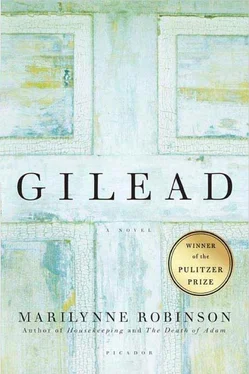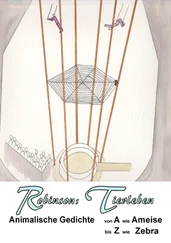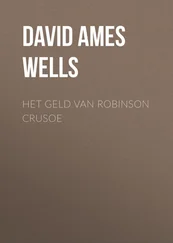I have mostly theology, and some old travel books from before the wars. I’m pretty sure a lot of the treasures and monuments I like to read about now and then don’t even exist anymore.
Your mother goes to the public library, which has been down on its luck for a long time, like most things around here. Last time she brought back a copy of The Trail of the Lonesome Pine that was worn ragged, all held together with tape.
She just sank into it, though, she just melted into it. And I made scrambled eggs and toasted cheese sandwiches for our supper so she wouldn’t have to put the book down. I read it years ago when everyone else did. I don’t remember enjoying it particularly.
When I was a boy I knew of a murder out in the country where the weapon, a bowie knife, was said to have been thrown into the river. All the children talked about it. An old farmer was attacked from behind in his barn while he was milking. The main suspect was known to have had a bowie knife, because he was proud of it, always showing it around. So they came near hanging him, I guess, since he couldn’t produce that knife and nobody else could find it. They thought he must have thrown it in the river. But his lawyer pointed out that someone, maybe a stranger, could have stolen it from him and done the crime and thrown the knife in the river, or just walked off with it, which seemed reasonable enough. Besides, he was certainly not the only man in the world with a knife of that kind. And no one could come up with any sort of motive. So they let him go, finally.
Then nobody knew whom to be scared of, which was terrible. The man who had owned the knife just drifted away.
There were rumors from time to time that he was in the area, and he may well have been, poor devil, since he had a sister there and not another soul in the world. The rumors usually circulated right around Christmas.
I worried about all this a great deal, because once my father took me with him to throw a gun into the river. My grandfather had a pistol he’d picked up in Kansas before the war.
When he took off west, he left an old army blanket at my father’s house, a bundle rolled up and tied with twine. When we learned he’d died out there, we opened it. There were some old shirts that had been white once and a few dozen sermons and some other papers wrapped with twine, and the pistol. Of course it was the pistol that interested me most. And I was a good deal older than you are now. But my father was disgusted. These things my grandfather had left were just an offense to him. So he buried them.
The hole he dug must have been four feet deep. I was impressed at the work he put into it. Then he dropped that bundle into the hole and started filling it in. I asked him why he was burying the sermons, too — at the time I naturally thought anything with handwriting on it was probably a sermon, and this did turn out to be the case. There were some letters, too. I know because not an hour after he’d put it in the ground my father went out and dug it all up again. He put the shirts and the papers aside and buried that gun again. Then a month or so later he dug it up and threw it in the river. If he had left it in the ground, it would be just about under the back fence, maybe a foot or two beyond it.
He didn’t say anything to me. Well, he said, “You leave that be,” when he dropped that big old gun back into the hole. Then he gave me the sermons to hold while he shook out those shirts and folded them up. He told me to carry the papers into the house, which I did, and he filled in the hole again. He stamped it down and stamped it down. Then about a month later he dug the pistol up again and set it on a stump and broke it up the best he could with a maul he had borrowed and he tied it up in a piece of burlap, and he and I walked to the river, a good way downstream from where we usually went to fish, and he flung the pieces of it as far as he could into the water. I got the impression he wished they didn’t exist at all, that he wouldn’t really have been content to drop them in the ocean, that he’d have set about to retrieve them again from any depth at all if he’d thought of a way to make them vanish entirely. It was a big old pistol, as I have said, with ornaments on the handle sort of like you see on cast-iron radiators. It seems I can remember the cold of it and the weight of it and the smell of iron it would have left on my hands. But I know my father never did let me touch it. I suppose it would have been nickel, anyway. Frankly, I thought there must have been some terrible crime involved in all this, because my father had never really told me the substance of his quarrel with his father.
He rinsed out those two old shirts at the pump and hung them up by their tails on my mother’s clothesline, preparing to burn them, I was sure. They were stained and yellow, miserable-looking things, with the wind dragging their sleeves back and forth. They looked beaten and humiliated, hanging there head down, so to speak, the way you’d hang up a deer to dress it. My mother came out and took them right back down.
In those days there was a lot of pride involved in the way a woman’s wash looked, especially the white things. It was difficult work. My mother couldn’t have dreamed of an electrical wringer or an agitator. She’d rub the laundry clean on a washboard. Then it would all be so beautiful and white. It really was remarkable. And all the women did it, every Monday of the world. When the electricity first came in, they ran it before dawn and at suppertime, to help with the chores, and a few hours extra on Mondays, to help with the wash.
Well, my mother couldn’t tolerate the state those pitiful shirts were in. She had a strong sense that the population at large judged her character by what appeared on her clothesline, and I can’t say she was wrong. But there was more in her mind than that. My father had a favorite verse of Scripture: “For all the armor of the armed man in the tumult, and the garments rolled in blood, shall be for burning, for fuel of fire.” That is Isaiah 9:5. My mother must have felt she knew what he meant to do and felt there was disrespect in it. In any case, she took those shirts and scrubbed them and soaked them overnight and bleached them and rinsed them in bluing till they looked all right except for a few black stains she said were India ink and the brown stains which were blood. She hung them under the grape arbor, where no one would see them. Then she brought them in and ironed them with enormous care, singing while she did it, and when she was done they looked as respectable as their stains and their wounds would allow. Then she folded them — they were so white and polished they looked like marble busts — and she slipped them into a flour sack, and she buried them out by the fence, under the roses. My parents were not always of one mind.
I should dig around a little and see if anything is left of those shirts. It would be a pity if they were sometime just cast out like refuse, after all her hard work. I myself think it would have been the decent thing to burn them.
I got up the courage to ask my father once if my grandfather had done something wrong and he said, “The Good Lord will judge what he did,” which left me believing there had been some kind of crime for sure. There is one photograph of my grandfather around the house somewhere, taken in his old age, that might help you understand why I thought this way. It is a good likeness. It shows a wild-haired, one-eyed, scrawny old fellow with a crooked beard, like a paintbrush left to dry with lacquer in it, staring down the camera as if it had accused him of something terrible very suddenly, and he is still thinking how to reply and keeping the question at bay with the sheer ferocity of that stare. Of course there is guilt enough in the best life to account for a look like that.
Читать дальше












